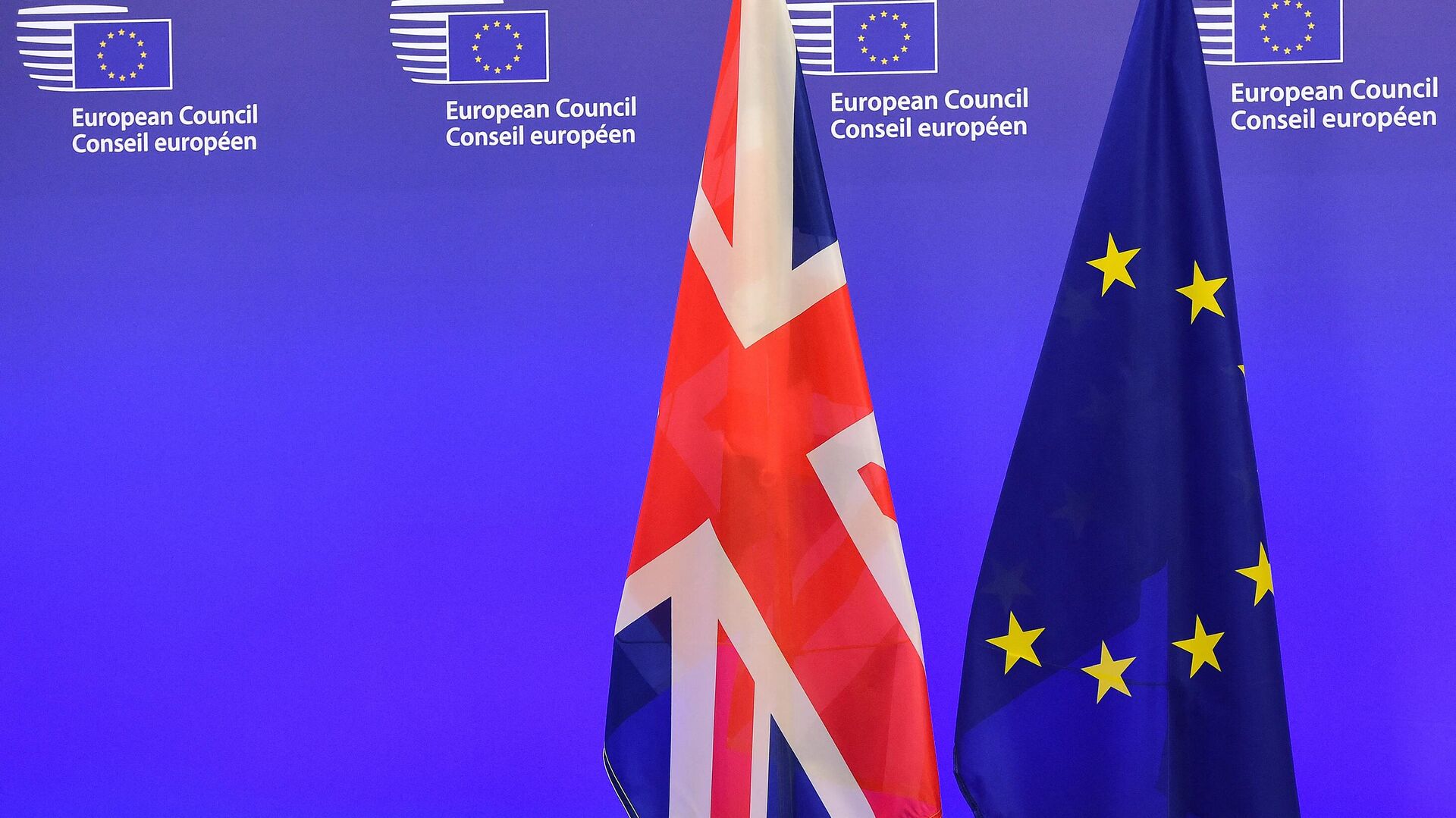https://sputnikglobe.com/20220406/on-collision-course-uk-eu-may-lock-horns-over-russian-gas-imports-at-g7-gathering-1094523486.html
On Collision Course? UK, EU May Lock Horns Over Russian Gas Imports at G7 Gathering
On Collision Course? UK, EU May Lock Horns Over Russian Gas Imports at G7 Gathering
Sputnik International
The US and some of its European partners continue to struggle with soaring energy costs, fuel bills, and food prices as a result of the anti-Russian sanctions... 06.04.2022, Sputnik International
2022-04-06T11:28+0000
2022-04-06T11:28+0000
2023-05-28T15:18+0000
russia
european union (eu)
united kingdom (uk)
https://cdn1.img.sputnikglobe.com/img/07e6/04/06/1094523697_0:202:2925:1847_1920x0_80_0_0_b4b93f01d424666a804e1d22fbb041f6.jpg
The UK and the EU remain at loggerheads due to Brussels ignoring London's plea to outline a clear-cut schedule to scrap Russian gas supplies.The standoff between the pair will most likely continue at the 7 April G7 meeting in the Belgian capital, where British Foreign Secretary Liz Truss is expected to call on fellow foreign ministers to slap much tougher sanctions on Russia.EU Commission President Ursula von der Leyen, however, did not mention Russian gas as she unveiled a fifth package of sanctions against President Vladimir Putin, in remarks that followed those of the UK foreign secretary.According to von der Leyen, the EU will ban imports of coal, wood, cement, liquors, and seafood worth €9.5 billion a year, also considering an embargo on oil.US, Allies Impose Anti-Russian Sanctions The US and its allies have introduced full-blown sanctions on Russia over its ongoing special military operation in Ukraine, which was announced by Russian President Vladimir Putin on 24 February and aims to demilitarise and de-Nazify Ukraine.As part of the sanctions, Biden announced a total ban on energy imports from Russia in early March, with the UK following suit and pledging to phase out imports of Russian oil and coal products by the end of 2022. The European Commission, in turn, unveiled a plan to reduce reliance on Russian gas by two-thirds before Christmas, and abolish Russian fossil fuel, such as coal and oil, by 2030.German Chancellor Olaf Scholz, for his part, said that his country had been working with EU partners "at full speed" to find alternatives to Russian energy, but warned this process could not be done "overnight".He pledged to end dependence on Russian energy as quickly as possible, cautioning that "to do this in one day would plunge" Germany "and the whole of Europe into a recession". According to the chancellor, "hundreds of thousands of jobs and entire branches of industry would be at risk".
united kingdom (uk)
Sputnik International
feedback@sputniknews.com
+74956456601
MIA „Rosiya Segodnya“
2022
Oleg Burunov
https://cdn1.img.sputnikglobe.com/img/07e4/09/0b/1080424846_0:0:2048:2048_100x100_80_0_0_3d7b461f8a98586fa3fe739930816aea.jpg
Oleg Burunov
https://cdn1.img.sputnikglobe.com/img/07e4/09/0b/1080424846_0:0:2048:2048_100x100_80_0_0_3d7b461f8a98586fa3fe739930816aea.jpg
News
en_EN
Sputnik International
feedback@sputniknews.com
+74956456601
MIA „Rosiya Segodnya“
Sputnik International
feedback@sputniknews.com
+74956456601
MIA „Rosiya Segodnya“
Oleg Burunov
https://cdn1.img.sputnikglobe.com/img/07e4/09/0b/1080424846_0:0:2048:2048_100x100_80_0_0_3d7b461f8a98586fa3fe739930816aea.jpg
european union (eu), united kingdom (uk)
european union (eu), united kingdom (uk)
On Collision Course? UK, EU May Lock Horns Over Russian Gas Imports at G7 Gathering
11:28 GMT 06.04.2022 (Updated: 15:18 GMT 28.05.2023) The US and some of its European partners continue to struggle with soaring energy costs, fuel bills, and food prices as a result of the anti-Russian sanctions imposed over Moscow's ongoing special military operation in Ukraine that began on 24 February.
The UK and the EU remain at loggerheads due to Brussels ignoring London's plea to outline a clear-cut schedule to scrap Russian gas supplies.
The standoff between the pair will most likely continue at the 7 April G7 meeting in the Belgian capital, where British Foreign Secretary Liz Truss is expected to call on fellow foreign ministers to slap much tougher sanctions on Russia.
Speaking in Poland earlier this week, Truss said that on Thursday, she "will be urging" the UK's NATO and G7 partners "to go further in sanctions" by joining Britain in banning Russian ships from UK and EU ports, "cracking down on more Russian banks, going after industries that are filling Putin's war chest like gold, and agreeing [on] a clear timetable to eliminate imports of Russian oil, coal, and gas".
EU Commission President
Ursula von der Leyen, however, did not mention Russian gas as she unveiled a fifth package of sanctions against President Vladimir Putin, in remarks that followed those of the UK foreign secretary.
According to von der Leyen, the EU will ban imports of coal, wood, cement, liquors, and seafood worth €9.5 billion a year, also considering an embargo on oil.
The Independent noted that "while the coal imports are worth an annual €4 billion to Russia, that is dwarfed by the €100 billion paid to Russia by EU countries last year for its oil and gas".
US, Allies Impose Anti-Russian Sanctions
The US and its allies have introduced full-blown sanctions on Russia over its ongoing special military operation in Ukraine, which was announced by
Russian President Vladimir Putin on 24 February and aims to demilitarise and de-Nazify Ukraine.
As part of the sanctions, Biden announced a total ban on energy imports from Russia in early March, with the UK following suit and pledging to phase out imports of Russian oil and coal products by the end of 2022. The European Commission, in turn, unveiled a plan to reduce reliance on Russian gas by two-thirds before Christmas, and abolish Russian fossil fuel, such as coal and oil, by 2030.
German Chancellor Olaf Scholz, for his part, said that his country had been working with EU partners "at full speed" to find alternatives to Russian energy, but warned this process could not be done "overnight".
He pledged to end dependence on Russian energy as quickly as possible, cautioning that "to do this in one day would plunge" Germany "and the whole of Europe into a recession". According to the chancellor, "hundreds of thousands of jobs and entire branches of industry would be at risk".





